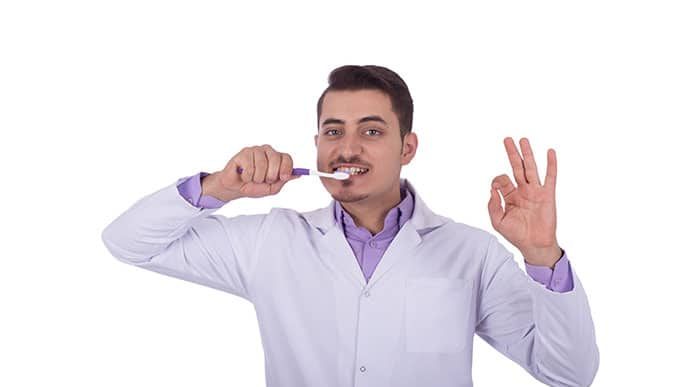-
-

TEETH WHITENING
What Is Stannous Fluoride Toothpaste?Stannous fluoride toothpaste helps prevent cavities, reduce sensitivity, fight plaque, and support daily gum and enamel health.

Selecting Dental Products
Best Toothpaste in India: Five Dentist-Recommended TypesToothpastes today are formulated to meet your every dental need and come in many flavours. Have your dental professional suggest the best toothpaste in India.
-
Science & Innovation
- ORAL HEALTH CHECK
- PRODUCT MATCH
- Colgate® | Toothpaste, Toothbrushes & Oral Care Resources
- Oral Health
- Selecting Dental Products
- The Facts About Abrasive Toothpaste


You know what flavour your toothpaste is, how much fluoride it contains and whether it helps whiten your teeth. But do you know how abrasive it is? Brushing with an abrasive toothpaste removes dental plaque and stains from your teeth, but it can also wear away your enamel. Here's how to find out if your toothpaste is too abrasive or just right for your mouth.
The Dangers of Tooth Enamel Abrasion
Enamel, the outermost layer of the teeth, is the toughest substance in the human body. But according to the Indian Dental Association, rigorous brushing, hard-bristled toothbrushes and abrasive toothpastes can wear enamel away and leave teeth vulnerable to decay. Some of the signs you might expect to see if you've been overdoing it while brushing your teeth include:
- Notches in your teeth where they meet the gum
- Gum recession that exposes the tooth roots
- Sensitivity
- Pain when you brush or eat hot or cold foods
- Yellow or grey teeth
Enamel wear triggers sensitivity by exposing the thin dentin layer underneath to pressure and temperature extremes. Worn enamel can also be caused by acid erosion from acidic foods or drinks, gastrointestinal disorders or eating disorders. Tooth enamel doesn't grow back once it's gone.
Toothpaste Abrasiveness
Abrasive toothpaste is only one of the causes of enamel erosion, but it is one of the most preventable. Relative Dentin Abrasivity determines the abrasiveness of a toothpaste.
A toothpaste with an acceptable level of RDA must not be higher than 250. This cut-off aims to ensure that a lifetime of brushing with a certain toothpaste won't cause significant damage to the tooth enamel. Various scientific studies have been conducted to compare the abrasiveness of various toothpaste that you can read on Internet to determine the best toothpaste for yourself.
How to Check the Abrasiveness of Toothpaste
The best way to avoid using an excessively abrasive toothpaste is to look for the ADA's Seal of Acceptance on the package or tube. The IDA notes that common abrasive ingredients in toothpaste are derived from chalk and silica. Calcium carbonate, sodium metaphosphate, zirconium silicate and calcium pyrophosphate are just a few abrasives you may find on a list of toothpaste ingredients. Generally, toothpastes designed to whiten teeth or remove stains are more abrasive than non-whitening toothpastes.
Stain-free, white teeth are a wonderful confidence boost, but take care not to overdo your brushing or you could end up with thin enamel and sensitive teeth. Brush gently with a soft-bristled toothbrush and a toothpaste that carries the ADA's Seal of Acceptance if you want to avoid enamel wear and sensitivity. If you have any doubts, your dentist can recommend oral care products and instruct you on proper brushing techniques.
This article is intended to promote understanding of and knowledge about general oral health topics. It is not intended to be a substitute for professional advice, diagnosis or treatment. Always seek the advice of your dentist or other qualified healthcare provider with any questions you may have regarding a medical condition or treatment.
ORAL HEALTH QUIZ
What's behind your smile?
Take our Oral Health assessment to get the most from your oral care routine
2.3 billion
people worldwide suffer from tooth decay
ORAL HEALTH QUIZ
What's behind your smile?
Take our Oral Health assessment to get the most from your oral care routine
2.3 billion
people worldwide suffer from tooth decay
Related Products

Helping dental professionals
More professionals across the world trust Colgate. Find resources, products, and information to give your patients a healthier future










